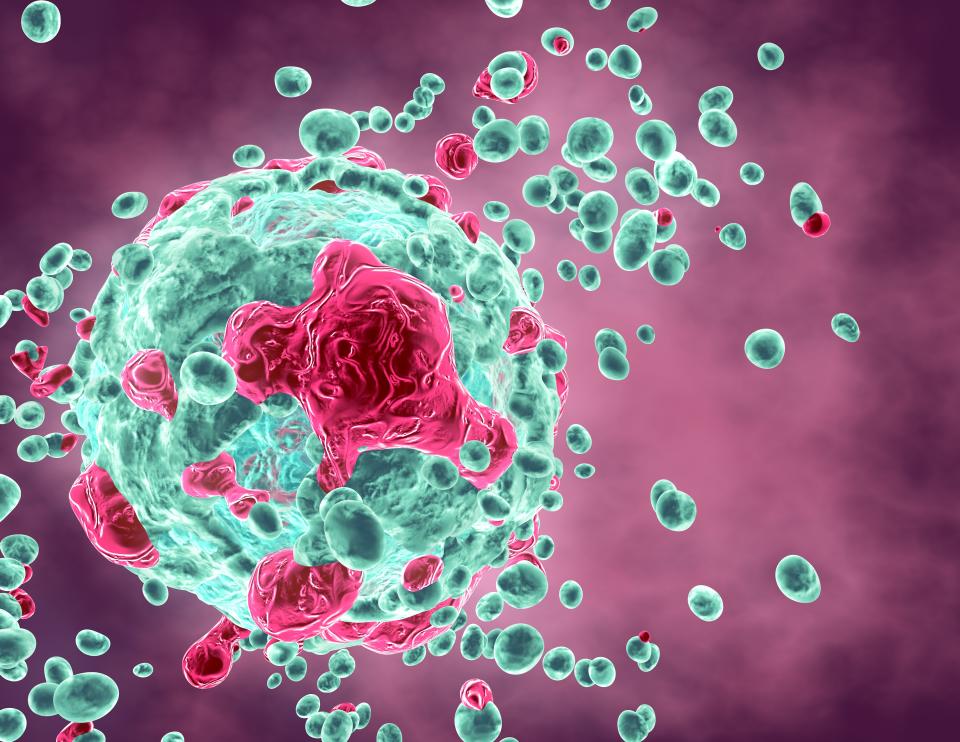3 little-known signs of kidney cancer

Kidney cancer is among the 20 most common forms of the disease in the UK.
READ MORE: The cancers on the rise - and the decline - in the UK
Despite more than 12,000 cases being diagnosed every year, the tell-tale signs of the condition are poorly understood.
As with any cancer, spotting it early maximises a patient’s hopes of beating the disease.
3 little-known signs of kidney cancer
Back pain
Back pain is a vague symptom, with everything from arthritis to stress potentially being to blame.
“Back pain is a symptom people don’t often associate with kidney cancer, it can therefore sometimes be overlooked,” Dr Katia Boleti, from the Royal Free Hospital in London, told Yahoo UK.
“The pain can range between a dull ache to a sharp stab.”
Continuous discomfort should raise alarm bells.
“If the pain in your back or side, is constant and doesn’t appear to be going away, it’s a good idea to seek a doctor’s opinion,” Dr Boleti, speaking on behalf of Kidney Cancer UK, said.
“While it’s unlikely to be kidney cancer, back pain is always worth checking out to ensure anything underlying is ruled out and you are being treated correctly to avoid it getting worse.”
Anaemia
The kidneys are a complex organ, with their primary function being to filter the blood, removing waste and producing urine.
You many not realise, however, they also play a role in making blood.
Kidneys produce a hormone called erythropoietin (EPO), which sends a signal to the rest of the body to make red blood cells, according to the American Kidney Fund.
When the organ is not functioning as it should, EPO levels decline and there are fewer red blood cells available to carry oxygen around the body.
This is defined as anaemia, which can leave sufferers unusually tired, Bupa reports.
READ MORE: Pancreatic cancer: symptoms to look out for
“Whilst anaemia can be a sign of kidney cancer, it can also be the result of not enough iron in your diet so more often than not, it’s not something to stress about and can be easily controlled using supplements or over-the-counter tablets,” Dr Boleti said.
“If you are showing signs of anaemia, such as high levels of fatigue, unusually pale skin or shortness of breath, it’s advised you visit your GP and request a blood test.”
An abnormally high red blood cell count can also be a sign of kidney cancer.
This is rare, however, according to the Mayo Clinic.
A high red blood cell count is usually only detected in blood tests to uncover another condition, like an infection or unexplained bleeding.

Loss of appetite
Going off food can be a sign of kidney cancer.
This can lead to a patient losing weight without trying, another warning sign of the disease.
Be conscious, however, this vague symptom has been linked to a host of conditions and circumstances.
Some lose a “noticeable amount of weight” during stressful situations, like during a divorce or redundancy, according to the NHS.
Depression and an overactive thyroid can also cause people to unwittingly shed some pounds.
Weight loss can also be a side effect of certain drugs, as well as a cold or flu.
“This is a symptom to be mindful of,” Dr Boleti said.
“While a loss of appetite can be the result of a number of minor everyday illnesses, if you are concerned it’s always best to consult a doctor.”
READ MORE: Shannen Doherty reveals she has stage four cancer, what does this mean?
The above symptoms are far from the only ones kidney cancer can cause.
Many tend to be similar to a urinary tract infection (UTI) or kidney stones, according to the NHS.
Symptoms can include blood in the urine, which may look dark or reddish.
Other warnings signs are a lump or swelling in the side, as well as fever, night sweats, swollen lymph nodes in the neck, bone pain and coughing up blood.
Men may notice swelling in the veins of their testicles.
Some of these only occur if the cancer has spread, such as to the bones or lungs.
The NHS urges people to see their GP as soon as they develop any of the above.
How is kidney cancer diagnosed and treated?
If you develop symptoms, your GP may examine your side for lumps.
They may also test for a UTI by taking a urine sample.
Once a UTI has been ruled out, patients will be referred to a specialist.
Various scans may be carried out to create an image of the kidneys, revealing any problems.
You may also have a cystoscopy, where a thin tube is passed up the urethra, which carries urine out of the body. This helps detect any issues in the bladder.
A biopsy allows kidney tissue to be analysed in the laboratory for signs of cancer.
Once diagnosed, treatment depends on the size of the tumour and whether it has spread.
Most have surgery to remove all or part of the diseased kidney.
Ablation therapies may also be used to destroy cancer cells via extreme hot or cold temperatures.
Targeted therapies can help stop the tumour growing, while embolisation cuts off its blood supply.
Radiotherapy may also be used to target the malignant cells and relieve symptoms.
Find out more about treating kidney cancer on the NHS’ website.



